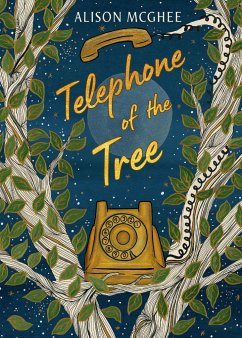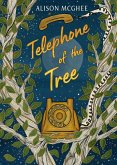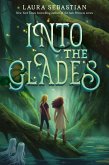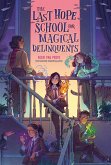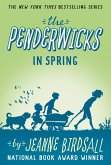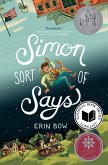"Inspired by Itaru Sasaki s phone booth in Japan, where people can symbolically call deceased loved ones, McGhee lays bare the powerful emotions entangled with loss while demonstrating the strength found in community." Booklist
"McGhee injects a speculative twist to this tender tale about death and grief. Employing spare, sensory language, McGhee explores the painful negative space created by loss and the devastation of a friendship cutshort, as well as the healing found in moving forward while remembering that 'there s more... so much more.'" Publishers Weekly
Rather than trot in a therapist or some other mouthpiece for wise counseling, the author gives her protagonist subtler (and more believably effective) help reaching that insight most notably parents who give her space rather than unwanted advice, and her grandfather s old telephone. Readers feeling Ayla s profound sense of loss will be relieved when she finds a way to live with it. Raw and sad but lit with occasional glints of humor and ending, as it should, on a rising note." Kirkus, starred review
The reveal that the phone was placed by Ayla s grandpa who used it to call his wife after she passed is just one beautiful details in a story that focuses on generational healing rather than generational trauma. While more mature readers may quickly realize that Kiri has died, the novel s hybrid of lyrically written plot fragments and stream of consciousness serve to poetically reveal the facts as Ayla becomes ready to process them." The Bulletin of the Center for Children's Books, starred review
In a first-person narrative, ten-year-old Ayla's loose, dreamy narrative dances around current details, but she eventually confides she misses her best friend Kiri, insisting that her friend will be back soon. Ayla divulges small incidents and observations like a trail of breadcrumbs, allowing readers to piece together what she herself cannot admit: Kiri is not coming home. Ayla s voice as she comes to terms with what has happened, combined with the care and understanding of those supporting her while she grieves, create an intensely emotional reading experience." The Horn Book Magazine, starred review
"Award-winning writer McGhee has penned another memorable story. Ayla s narration beautifully captures the grieving process from the perspective of a child and the characters who surround her are supportive and caring. Beautiful pencil drawings enhance the plot. The use of they pronouns when referring to Kiri makes the story more inclusive for all readers. A lovely book for children (and even adults) who may be grieving; this will grab readers hearts." School Library Journal
"McGhee injects a speculative twist to this tender tale about death and grief. Employing spare, sensory language, McGhee explores the painful negative space created by loss and the devastation of a friendship cutshort, as well as the healing found in moving forward while remembering that 'there s more... so much more.'" Publishers Weekly
Rather than trot in a therapist or some other mouthpiece for wise counseling, the author gives her protagonist subtler (and more believably effective) help reaching that insight most notably parents who give her space rather than unwanted advice, and her grandfather s old telephone. Readers feeling Ayla s profound sense of loss will be relieved when she finds a way to live with it. Raw and sad but lit with occasional glints of humor and ending, as it should, on a rising note." Kirkus, starred review
The reveal that the phone was placed by Ayla s grandpa who used it to call his wife after she passed is just one beautiful details in a story that focuses on generational healing rather than generational trauma. While more mature readers may quickly realize that Kiri has died, the novel s hybrid of lyrically written plot fragments and stream of consciousness serve to poetically reveal the facts as Ayla becomes ready to process them." The Bulletin of the Center for Children's Books, starred review
In a first-person narrative, ten-year-old Ayla's loose, dreamy narrative dances around current details, but she eventually confides she misses her best friend Kiri, insisting that her friend will be back soon. Ayla divulges small incidents and observations like a trail of breadcrumbs, allowing readers to piece together what she herself cannot admit: Kiri is not coming home. Ayla s voice as she comes to terms with what has happened, combined with the care and understanding of those supporting her while she grieves, create an intensely emotional reading experience." The Horn Book Magazine, starred review
"Award-winning writer McGhee has penned another memorable story. Ayla s narration beautifully captures the grieving process from the perspective of a child and the characters who surround her are supportive and caring. Beautiful pencil drawings enhance the plot. The use of they pronouns when referring to Kiri makes the story more inclusive for all readers. A lovely book for children (and even adults) who may be grieving; this will grab readers hearts." School Library Journal

